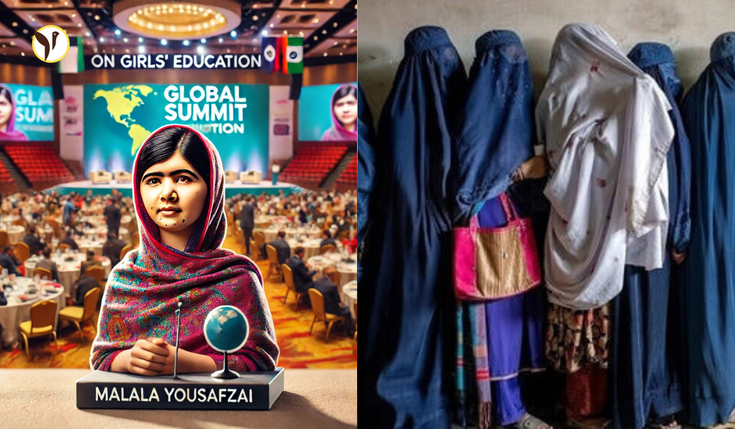A global summit focusing on girls’ education in Muslim-majority countries was held in Pakistan, bringing together education leaders and activists from across the Islamic world. However, the Taliban government of Afghanistan, the only regime in the world that bans girls from attending school, declined to attend despite being invited.
Pakistan’s education minister, Khalid Maqbool Siddiqui, confirmed that an invitation was sent to the Afghan authorities, but no representatives attended. Speaking to the press, Siddiqui said, "We had extended an invitation to Afghanistan, but no one from the Afghan government was at the conference."
Challenges Faced by Girls in Education
The summit aimed to address significant challenges in ensuring equitable access to education for girls, particularly in Muslim-majority countries. Pakistan's caretaker Prime Minister, Anwaar-ul-Haq Kakar, and other leaders emphasized that education is a fundamental right that must be protected.
"The Muslim world, including Pakistan, faces significant challenges in ensuring equitable access to education for girls," Kakar noted. He added, "Denying education to girls is like denying their voice, their choice, and their right to a bright future."
Since the Taliban took control of Afghanistan in 2021, they have implemented harsh restrictions on women and girls. Girls are banned from attending school beyond the sixth grade, and women are prohibited from working in many sectors and entering most public spaces. Additionally, strict dress codes requiring women to wear full-body coverings, including face veils, have been enforced.
Malala Yousafzai’s Call to Action
Nobel Peace Prize laureate Malala Yousafzai attended the summit to advocate for girls' education rights. Malala, who survived a near-fatal attack by the Pakistan Taliban in 2012 for her advocacy, has become a global symbol for education activism.
Malala took to social media to express her determination to support Afghan women and girls. "I will speak about protecting rights for all girls to go to school, and why leaders must hold the Taliban accountable for their crimes against Afghan women & girls," she posted on the platform X (formerly Twitter).
At the summit, Malala is expected to address global leaders, sharing her perspective on the urgent need for action to ensure girls' access to education.
A Missed Opportunity for Dialogue
Afghanistan’s absence from the summit has drawn criticism, with many seeing it as a missed opportunity to engage in meaningful dialogue about the importance of education. The exclusion of girls from schools in Afghanistan remains a grave concern for the international community, with many calling on the Taliban to reverse their policies.
The summit concluded with calls for stronger commitments from Muslim-majority countries to invest in education for girls. Leaders emphasized that empowering girls through education is essential for building more inclusive and prosperous societies.
By refusing to attend the conference, Afghanistan’s Taliban government reinforced its hardline stance, leaving Afghan girls and women to continue bearing the brunt of the regime’s oppressive policies.
As the world watches, activists like Malala and global leaders continue their efforts to highlight the need for education equity, urging the international community to hold regimes like the Taliban accountable.






